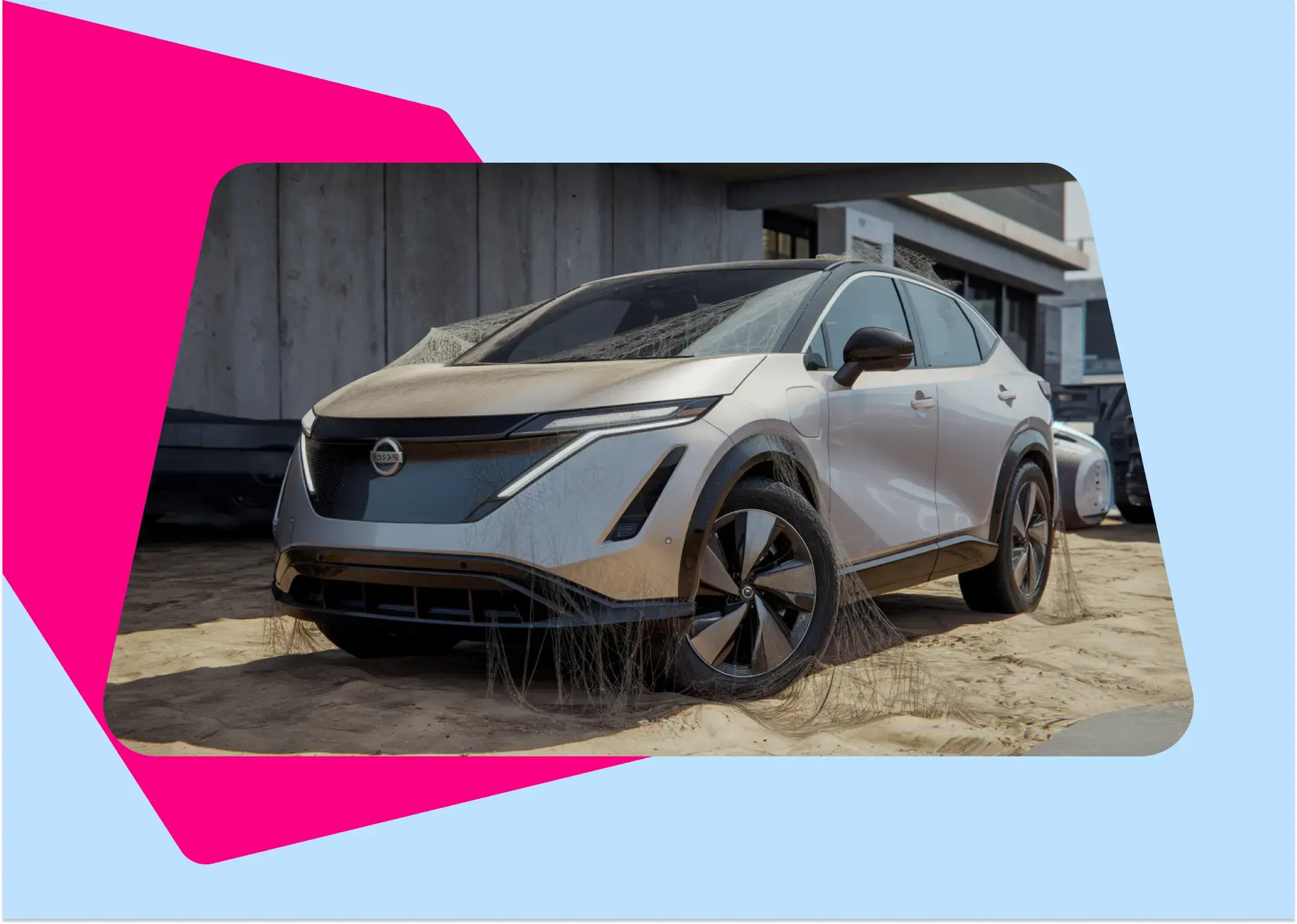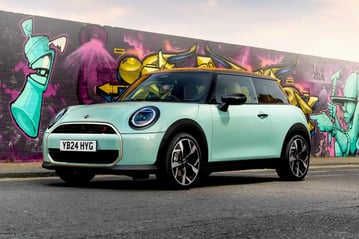- 🗞 News
- Last updated: Nov 4, 2024
- 9 Min Read
Gone in 30 days... or not: The UK’s speediest and sleepiest car sales
Written by

Verified by


See how much you can borrow in 60 seconds
| Representative Example | |
|---|---|
| Loan amount | £10,000 |
| Interest rate | 13.9% APR |
| 54 payments of | £246 |
| Total cost of credit | £3,284 |
| Option to purchase fee | £1 |
| Total payable | £13,285 |
In the fast-paced world of car sales, some models barely touch the showroom floor before finding a new owner, while others seem destined for a slower and more winding route to their destination. Thanks to our data partners at Brego, who meticulously track every car sale in the UK, we’re revealing this year’s hottest (and slowest) movers.
So, which cars are the fastest-selling in the UK? And why are certain electric models hanging around for longer than expected? Let’s dive in.
Fastest selling cars in the UK
Topping the list for the fastest-moving vehicles, it’s interesting to see a mix of budget-friendly, practical models as well as a few niche choices. Here are the speediest sellers, with an average of just about a month on the market:
|
Model |
Days to sell |
|
Dacia Jogger |
30.1 |
|
Tesla Model 3 |
30.2 |
|
Nissan Pulsar |
31.2 |
|
Mercedes-Benz GLB |
31.3 |
|
Ford Edge |
31.3 |
|
MG GS |
31.4 |
|
Skoda Yeti |
31.9 |
|
Tesla Model Y |
32.0 |
|
Polestar Polestar 2 |
32.4 |
|
Mercedes-Benz GLA |
32.8 |
The appeal of these cars lies in their versatility, affordability, and popularity among family buyers. The Dacia Jogger, for instance, has quickly gained a reputation as a budget-friendly choice that doesn’t compromise on space or practicality as well as packing a punch in terms of tech and safety features on even the most basic trims. Meanwhile, the Tesla Model 3 continues to captivate buyers, offering a blend of cutting-edge tech, impressive range and a surprisingly spacious interior and boot that’s hard to resist.
Slowest selling cars in the UK
On the other end of the spectrum, we find several models that are taking three to four times longer to sell. Surprisingly, many of these are electric vehicles (EVs), hinting at some interesting trends within the UK market. Here are the slowest movers:
|
Model |
Days to sell |
|
Nissan ARIYA |
114.7 |
|
Hyundai IONIQ 6 |
98.9 |
|
Audi RS e-tron GT |
96.7 |
|
Citroen C5 X |
88.7 |
|
Audi Q8 e-tron |
86.4 |
|
Lamborghini Huracan |
86.2 |
|
Subaru XV |
86.2 |
|
Volkswagen ID.5 |
85.2 |
|
Peugeot 408 |
83.8 |
|
Volvo C40 |
82.0 |
These models are spending more than three months on average in the showroom before they’re sold. While premium EVs like the Audi RS e-tron GT offer exceptional features and performance, they also come with higher price tags pricing them out of being considered an ‘entry level EV’, limiting their appeal beyond experienced EV converts.
Why are electric cars among the slowest to sell?
Electric vehicles have surged in popularity over recent years, but they still face challenges that may explain why some models linger longer on the lot.
Higher prices
Many EVs, especially premium models, come with a heftier price tag compared to their petrol or hybrid counterparts. This price difference can slow down sales, particularly when interest rates and inflation are impacting buyers' budgets.
Charging infrastructure
Although the UK’s charging infrastructure is growing, it’s still not as widespread, as reliable or convenient as traditional refueling options. For buyers in rural or under-served areas, the limited availability of charging points can be a significant deterrent.
Limited second-hand market for EVs
While there’s demand for EVs in the new market, the second-hand EV market is still in its early stages. Buyers looking at used options might be cautious about battery degradation and longevity, adding hesitation to their decision-making.
Depreciation concerns
EV technology is advancing rapidly, which could lead to quicker depreciation. Potential buyers may worry that today’s cutting-edge electric models might be outdated in a few years, affecting their resale value.
Understanding the trends of fast and slow-selling cars in the UK can help both buyers and sellers make more informed decisions. For buyers, these insights can provide a sense of which models might offer better deals or more room for negotiation on price if they’re slower to move. Sellers and dealers, on the other hand, can leverage this insight to anticipate which models may need a stronger marketing push or some flexibility in terms of pricing to get them off the forecourt and on to someone’s driveway.
At Carmoola, we stay on top of these trends, working to bring you the best finance options for whichever model fits your needs, whether it’s an electric icon or a family-friendly SUV. Stay tuned for more insights as we continue to track the UK’s car market with Brego!
See how much you can borrow in 60 seconds
| Representative Example | |
|---|---|
| Loan amount | £10,000 |
| Interest rate | 13.9% APR |
| 54 payments of | £246 |
| Total cost of credit | £3,284 |
| Option to purchase fee | £1 |
| Total payable | £13,285 |
Related articles
Does Financing a Car Build Your Credit?
Financing a car can build credit when you make payments on time, but it can damage your score if you miss payments or take on...
Car Refinancing: What Is It and How It Can Lower Your Monthly Payments
Refinancing your car can give you benefits like lowering your monthly payments or reducing interest costs, depending on your...
Can you drive in the UK on a foreign licence?
If you’re new to the UK, you might be keen to get behind the wheel to explore on the open road. You can usually drive in the UK...

.webp?width=832&height=592&name=customer-support%20(1).webp)










.webp?width=400&height=285&name=online-shoppers-with-dog%20(1).webp)


.jpg?width=500&height=356&name=Vintage%20car%20going%20to%20an%20old%20town-1%20(1).jpg)





